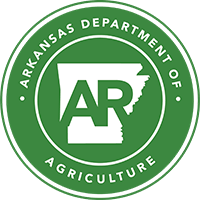Natural Resources
Efficiently and responsibly managing and protecting our water and land resources for the sustainability, health, safety, and economic benefit of the State of Arkansas
Agriculture / Natural Resources / Divisions / Water Management / Floodplain Management / Floodplain Management Programs
Floodplain Management Programs
Cooperative Technical Partnership (CTP) And Risk MAP
The State of Arkansas has had major disaster declarations for flooding events during each of the last five years. Since 1990, there have been declarations of major disasters in the state every year except for 1993, 1995, 2000, 2007, and 2012). For this and many reasons, the State is compelled to take a larger role in the identification, management, and mitigation of risk in Arkansas. We believe that by committing to work with FEMA as a Cooperating Technical Partner (CTP) we will both accomplish more and accomplish it in a more efficient manner.
In September of 2011, ANRC and FEMA Region VI executed the Cooperating Technical Partnership Agreement. Through the CTP Program, Arkansas works with FEMA to identify, mitigate, and manage the natural hazard risks in our state through sound science and engineering practices and effective communication so that all of our citizens are aware of the potential risks in their communities.
ANRC is the CTP Program Manager, providing coordination and leadership for successful implementation of the Risk MAP grant program throughout the State of Arkansas. Ms. Whit Montague, the current NFIP Coordinator, serves as the CTP Coordinator.
Through the CTP program, ANRC has produced a number of flood risk products. Know your local flood risk by viewing and downloading your community’s flood risk products from FEMA's Flood Map Service Center (https://msc.fema.gov/portal/home). Flood risk products are non-regulatory resources that help communities gain a better understanding of flood risk and its potential impacts. Flood risk products may include: Flood Risk Map (FRM), Flood Risk Report (FRR) and Flood Risk Database (FRD). Also included is Base Level Engineering (BLE), a versatile product for estimating base flood elevations and more.
Base Level Engineering creates data that may be used to assess stream inventory, prioritize watersheds or stream segments for further study, provides a sounding board and initiates a discussion with communities that revolves around risk information, risk identification and indication of flood risk abatement and mitigation strategies that may reduce current or future flood risk. To determine if BLE data is available in your community, visit the Estimated BFE Viewer at https://webapps.usgs.gov/infrm/estBFE/.
Flood Mitigation Assistance Grant Program (FMA)
The FMA Grant Program was created as part of the National Flood Insurance Reform Act (NFIRA) of 1994 with the goal of reducing or eliminating claims under the National Flood Insurance Program (NFIP). Consistent with Biggert-Waters Flood Insurance Reform Act of 2012 (Public Law 112-141), the FMA program includes provisions to mitigate Severe Repetitive Loss (SRL) and Repetitive Loss (RL) properties.
Only NFIP-participating communities with FEMA approved Flood/Hazard Mitigation Plans can apply for FMA Project grants. The FMA program provides funds on an annual basis so that measures can be taken to reduce or eliminate the risk of flood damage to buildings, manufactured homes, and other structures insurable under the NFIP.
FEMA provides FMA funds annually on a nationally competitive basis. FEMA will select eligible project sub-applications in order of the agency’s priorities for the fiscal year FMA Grant Program (fund amounts are subject to change). Previous priorities have included:
- Community Flood Mitigation Projects
- Technical Assistance
- Flood Mitigation Planning
- Competitive funding for property flood mitigation projects (acquisition relocation, elevation)
For more information regarding FMA grants in Arkansas, contact:
Mike Harris
Flood Mitigation Assistance Grants Coordinator
Dam Safety & Floodplain Management Section
Natural Resources Commission
Little Rock, AR 72201
Email: mike.harris@agriculture.arkansas.gov
Office: (501) 682-3907 Fax: (501) 682-3991

